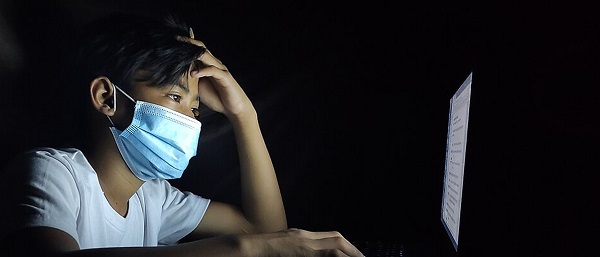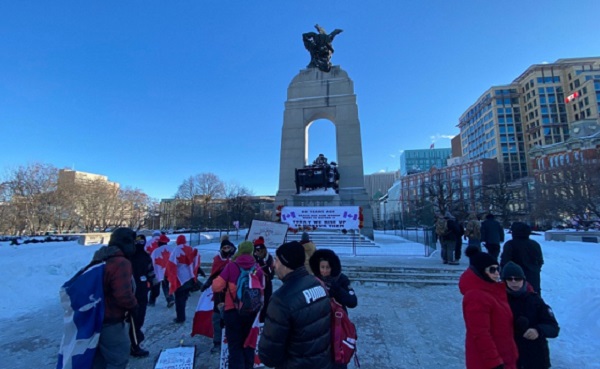COVID-19
Why FDA Was Right To Say No To COVID-19 Vaccines For Healthy Kids


From the Daily Caller News Foundation
The FDA’s decision not to authorize COVID-19 vaccines for healthy children has drawn criticism. Some argue: If parents want the shot, why not let them get it for their kids? That argument misunderstands what FDA authorization means — and why it exists.
The FDA often approves drugs that carry risks or have imperfect evidence of effectiveness. This is a tradeoff we sometimes accept for people who are ill: when someone is already sick, the alternative is untreated disease. Vaccines are different. They are given to millions of healthy children. This requires a higher standard, not just evidence for safety and immune response, but clear, durable clinical effectiveness. Approval for optional use isn’t neutral; once the FDA authorizes a vaccine, it carries the full weight of institutional endorsement.
Measles provides an example for how the FDA approaches vaccine approvals. Before the measles vaccine was introduced in 1963, the U.S. saw 3 to 4 million infections, ~48,000 hospitalizations, ~1,000 cases of encephalitis, and 400-500 deaths each year. Infants bore the brunt of the most severe outcomes.
Dear Readers:
As a nonprofit, we are dependent on the generosity of our readers.
Please consider making a small donation of any amount here.
Thank you!
That created a natural instinct: why not vaccinate the youngest and most vulnerable? The initial measles rollout was to 9-month-olds, but within two years that timing was changed to children who were at least 1 year of age. This was not because younger babies were not at risk or that the vaccine was riskier for them, but because it just didn’t work well enough to justify a universal campaign.
The knowledge of the particular risk younger infants face has led to continued research on the effectiveness of measles vaccination in that group. A 2023 trial of the combined measles/mumps/rubella (MMR) vaccine in infants aged 5-7 months, and subsequent safety and immune studies in 2024 and 2025, produced consistent results—safety and the ability to generate antibodies were demonstrated, but a durable response and protection against hospitalization were not.
That is why the FDA does not approve MMR for routine use in healthy children younger than 12 months of age. It is also precisely why getting back to herd immunity for measles is so essential: the youngest infants can only be protected if the rest of us are immunized.
What’s the evidence for COVID-19 vaccination in infants and children? It generates robust antibodies, often higher than in adults. But clinical benefits are modest, short-lived, and inconsistent. It is nowhere near the level of proof U.S. regulators require before making a vaccine universally available to healthy kids.
Some argue that even if benefits are modest, parents and pediatricians should be free to choose. But FDA authorization is not about personal preference; it is a stamp of approval for more than 70 million healthy children. Statistical safety is not enough. At that scale, even rare risks mean real harm to real children. COVID-19 vaccines were originally authorized in the hope that immune responses would translate into population-level benefits. For healthy children, the initial optimism sparked by early encouraging signals has steadily given way to three years of disappointing clinical results.
The lessons from measles are clear: safe but minimally effective isn’t enough. We don’t authorize MMR for 5-month-olds, even to parents who might want their children to get it. COVID-19 vaccines for healthy children should be judged similarly. This is not because there is a lack of any benefit, but because it doesn’t rise to the level we use for other vaccines. Only if and when proof of clinical effectiveness becomes available should authorization be reconsidered. At this time, the FDA is right to say no.
Monique Yohanan, MD, MPH, is a senior fellow at Independent Women, a physician executive and healthcare innovation leader, and Chief Medical Officer at Adia Health.
COVID-19
Canadian veteran challenges conviction for guarding War Memorial during Freedom Convoy

From LifeSiteNews
When the convoy first came to Ottawa, allegations were floated that the memorial had been desecrated. After learning of this, Evely quickly organized a group of veterans to stand guard around the clock to protect the area.
A Canadian veteran appealed to the Ontario courts after he was convicted for organizing a guard around the National War Memorial during the Freedom Convoy.
In an October press release, the Justice Centre for Constitutional Freedoms (JCCF) announced that an appeal has been filed in the Ontario Court of Appeals on behalf of Master Warrant Officer (Ret’d) Jeffrey Evely over his conviction for mischief and obstructing police while on his way to guard the Ottawa War Memorial during the 2022 Freedom Convoy.
“By locking down large sections of downtown Ottawa, the police were effectively preventing all civilians from accessing public areas and greatly exceeded their powers under the common law,” constitutional lawyer Chris Fleury explained.
“This case raises issues that have implications for protests across the province and the country. We are hopeful that the Ontario Court of Appeal will agree and grant leave to appeal,” he added.
The appeal argues that police overstepped their authority in their response to the 2022 protest of COVID mandates. Police actions at the time included locking down the Ottawa core, establishing checkpoints, and arresting protesters.
In September 2024, Everly was convicted of mischief and obstruction after his involvement in the 2022 Freedom Convoy, which protested COVID mandates by gathering Canadians in front of Parliament in Ottawa.
As LifeSiteNews previously reported, when the convoy first came to Ottawa, allegations were floated that the memorial had been desecrated. After learning of this, Evely quickly organized a group of veterans to stand guard around the clock to protect the area.
However, under former Prime Minister Justin Trudeau’s use of the Emergencies Act, many parts of downtown Ottawa were blocked to the public, and a vigilant police force roamed the streets.
It was during this time that Evely was arrested for entering a closed off section of downtown Ottawa during the early hours of February 19, 2022. He had been on his way to take the 4:25 a.m. shift protecting the Ottawa War Memorial.
As Evely walked to the memorial, he was allegedly told to stop by police. According to the police, Evely “ran for a short distance before being confronted by two additional police officers.”
He was forcibly pushed to the ground, landing face first. The veteran was then arrested and charged with mischief and obstructing police.
At the time, the use of the EA was justified by claims that the protest was “violent,” a claim that has still gone unsubstantiated.
In fact, videos of the protest against COVID regulations and shot mandates show Canadians from across the country gathering outside Parliament engaged in dancing, street hockey, and other family-friendly activities.
Indeed, the only acts of violence caught on video were carried out against the protesters after the Trudeau government directed police to end the protest. One such video showed an elderly women being trampled by a police horse.
While the officers’ actions were originally sanctioned under the EA, Federal Court Justice Richard Mosley ruled that Trudeau was “not justified” in invoking the EA, forcing Crown prosecutors to adopt a different strategy.
Now, Crown prosecutors allege that the common law granted police the authority to stop and detain Evely, regardless of the EA.
However, Evely and his lawyers have challenged this argument under section 9 of the Canadian Charter of Rights and Freedoms, insisting that his “arrest and detention were arbitrary.”
Earlier this month, Freedom Convoy organizers Tamara Lich and Chris Barber were sentenced to 18-month house arrest after a harrowing 25-month trial process. Many have condemned the sentence, warning it amounts to “political persecution” of those who stand up to the Liberal government.
COVID-19
Freedom Convoy leader Tamara Lich says ‘I am not to leave the house’ while serving sentence

From LifeSiteNews
‘I was hoping to be able to drop off and pick up my grandsons from school, but apparently that request will have to go to a judge’
Freedom Convoy leader Tamara Lich detailed her restrictive house arrest conditions, revealing she is “not” able to leave her house or even pick up her grandkids from school without permission from the state.
Lich wrote in a X post on Wednesday that this past Tuesday was her first meeting with her probation officer, whom she described as “fair and efficient,” adding that she was handed the conditions set out by the judge.
“I was hoping to be able to drop off and pick up my grandsons from school, but apparently that request will have to go to a judge under a variation application, so we’ll just leave everything as is for now,” she wrote.
Lich noted that she has another interview with her probation officer next week to “assess the level of risk I pose to re-offend.”
“It sounds like it’ll basically be a questionnaire to assess my mental state and any dangers I may pose to society,” she said.
While it is common for those on house arrest to have to ask for permission to leave their house, sometimes arrangements can be made otherwise.
On October 7, Ontario Court Justice Heather Perkins-McVey sentenced Lich and Chris Barber to 18 months’ house arrest after being convicted earlier in the year convicted of “mischief.”
Lich was given 18 months less time already spent in custody, amounting to 15 1/2 months.
As reported by LifeSiteNews, the Canadian government was hoping to put Lich in jail for no less than seven years and Barber for eight years for their roles in the 2022 protests against COVID mandates.
Interestingly, Perkins-McVey said about Lich and Barber during the sentencing, “They came with the noblest of intent and did not advocate for violence.”
Lich said that her probation officer “informed me of the consequences should I breach these conditions, and I am not to leave the house, even for the approved ‘necessities of life’ without contacting her to let her know where I’ll be and for how long,” she wrote.
“She will then provide a letter stating I have been granted permission to be out in society. I’m to have my papers on my person at all times and ready to produce should I be pulled over or seen by law enforcement out and about.”
Lich said that the probation officer did print a letter “before I left, so I could stop at the optometrist and dentist offices on my way home.”
She said that her official release date is January 21, 2027, which she said amounts to “1,799 days after my initial arrest.”
As reported by LifeSiteNews, Lich, reflecting on her recent house arrest verdict, said she has no “remorse” and will not “apologize” for leading a movement that demanded an end to all COVID mandates.
LifeSiteNews reported that Conservative Party leader Pierre Poilievre offered his thoughts on the sentencing, wishing them a “peaceful” life while stopping short of blasting the sentence as his fellow MPs did.
In early 2022, the Freedom Convoy saw thousands of Canadians from coast to coast come to Ottawa to demand an end to COVID mandates in all forms. Despite the peaceful nature of the protest, Trudeau’s government enacted the never-before-used Emergencies Act (EA) on February 14, 2022.
-

 Alberta21 hours ago
Alberta21 hours agoFrom Underdog to Top Broodmare
-

 International1 day ago
International1 day agoPrince Andrew banished from the British monarchy
-

 Business1 day ago
Business1 day ago“We have a deal”: Trump, Xi strike breakthrough on trade and fentanyl
-

 Alberta1 day ago
Alberta1 day agoProvince orders School Boards to gather data on class sizes and complexity by Nov 24
-

 Business2 days ago
Business2 days agoCanada’s attack on religious charities makes no fiscal sense
-

 Bruce Dowbiggin2 days ago
Bruce Dowbiggin2 days agoGet Ready: Your House May Not Be Yours Much Longer
-

 Crime1 day ago
Crime1 day agoCanada Seizes 4,300 Litres of Chinese Drug Precursors Amid Trump’s Tariff Pressure Over Fentanyl Flows
-

 Alberta1 day ago
Alberta1 day agoHow one major media torqued its coverage – in the take no prisoners words of a former Alberta premier









